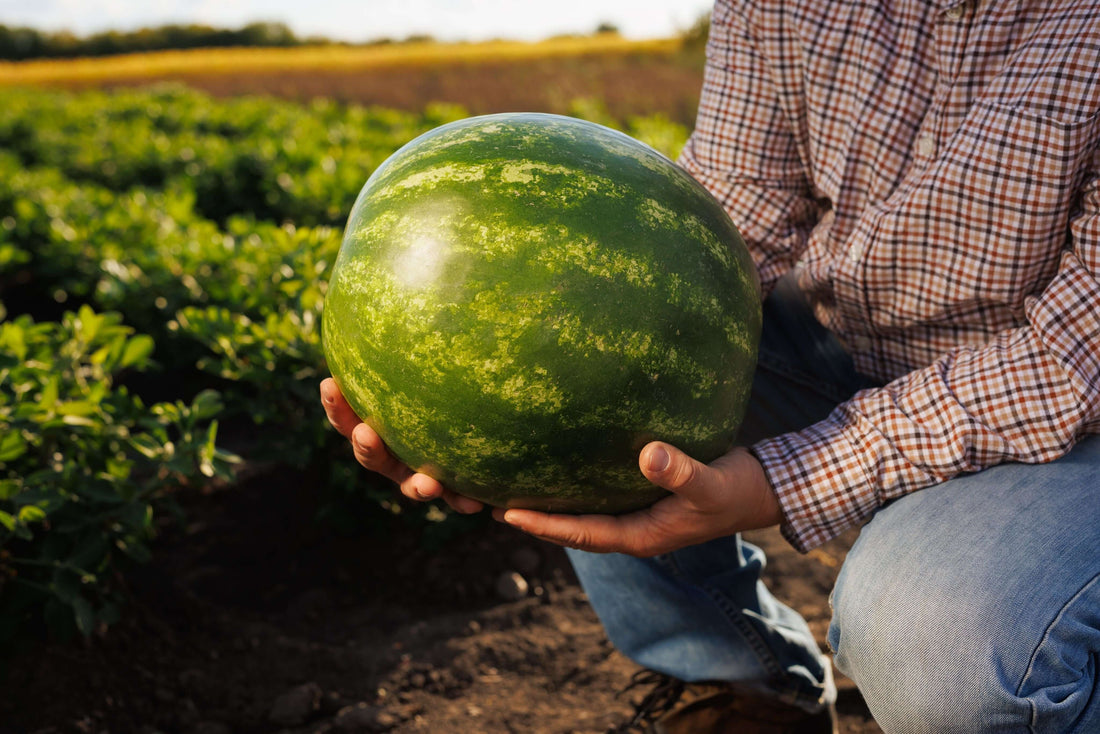
The Top Strategies for Growing Watermelon Organically in the US
Compartir

Topics Covered:
1. Introduction to Organic Watermelon Farming
2. Benefits of Organic Farming Practices
3. Choosing the Right Organic Fertilizer
4. Utilizing Worm Castings in Watermelon Cultivation
5. Incorporating Dairy Compost for Healthy Soil
6. Step-by-Step Guide to Planting Watermelon Organically
7. Maintenance and Care Tips for Organic Watermelon Farming
Introduction to Organic Watermelon Farming
Organic watermelon farming is a sustainable and environmentally friendly approach to growing this delicious fruit. By avoiding synthetic chemicals and pesticides, organic farmers prioritize soil health and biodiversity.
Benefits of Organic Farming Practices
Organic farming practices promote soil fertility, reduce pollution, and support biodiversity. By choosing organic methods, farmers contribute to a healthier ecosystem and produce nutritious watermelons free from harmful residues.

Choosing the Right Organic Fertilizer
When planting watermelon organically, it is essential to select a high-quality organic fertilizer. Look for products like organic fertilizer that provide essential nutrients without synthetic additives.
Utilizing Worm Castings in Watermelon Cultivation
Worm castings, also known as vermicompost, are a valuable organic amendment for watermelon cultivation. Rich in nutrients and beneficial microorganisms, worm castings improve soil structure and promote plant growth. Consider using Mikey's Worm Poop Organic Dairy Vermicompost for optimal results.
Incorporating Dairy Compost for Healthy Soil
Dairy compost is an excellent source of organic matter and nutrients for watermelon plants. By adding Dan's Gold Organic Dairy Compost to the soil, farmers can improve soil fertility and support microbial activity, leading to healthier watermelon crops.
Step-by-Step Guide to Planting Watermelon Organically
1. Prepare the soil by tilling and adding organic fertilizer, worm castings, and dairy compost.
2. Plant watermelon seeds or seedlings in well-drained soil with plenty of sunlight.
3. Water the plants regularly, ensuring consistent moisture levels in the soil.
4. Mulch around the plants to retain moisture and suppress weeds.
5. Monitor for pests and diseases, opting for organic pest control methods when needed.
Maintenance and Care Tips for Organic Watermelon Farming
1. Rotate crops to prevent soil depletion and disease buildup.
2. Harvest watermelons when they are ripe by gently twisting the fruit from the vine.
3. Save seeds from organic watermelons for future plantings to maintain genetic diversity.
By following these organic farming practices and utilizing organic inputs like worm castings and dairy compost, farmers can enjoy a bountiful harvest of delicious and nutritious watermelons while promoting environmental sustainability.

